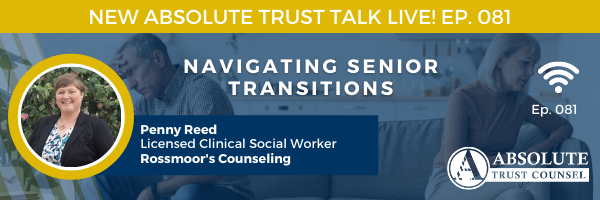


When completing any estate planning, including a trust, will, power of attorney, or health care directive, the person signing the documents must have what is called “capacity” in order to sign the documents. There are two kinds of capacity in estate planning: testamentary capacity and contractual capacity. Testamentary capacity is a lower form of capacity and is required by a…

Effective January 1, 2022, California Probate Code Sections 15800 and 16069 are amended by Assembly Bill 1079. The change in law affects Trustees who assume their role when the settlor or trustor (the creator of the trust) becomes incapacitated. Typically, the person or persons who create a revocable living trust hold the power to be able to revoke the trust.…



The Aged and Disabled Medi-Cal program pays for long-term care in a skilled nursing facility and care at home through In Home Support Services (IHSS). In order to qualify for this type of Medi-Cal, you must meet an income test, or have a share of cost if your income is too high, and you are limited in the amount of…

What if you could order a cremation for your loved one from their bedside? It would certainly avoid the need to research and find a funeral home. In addition, it avoids a visit to the funeral home and the potential for employees to try and upsell your every decision. For basic cremation with the delivery of cremains to your doorstep,…


We work with so many families who are struggling with dementia. Understanding how to deal with dementia is a growing problem in our society as the average age of our population continues to increase. We have all heard the statistic that 10,000 people become eligible for Medicare every day by turning 65. Every day. And caring for a family member with…

